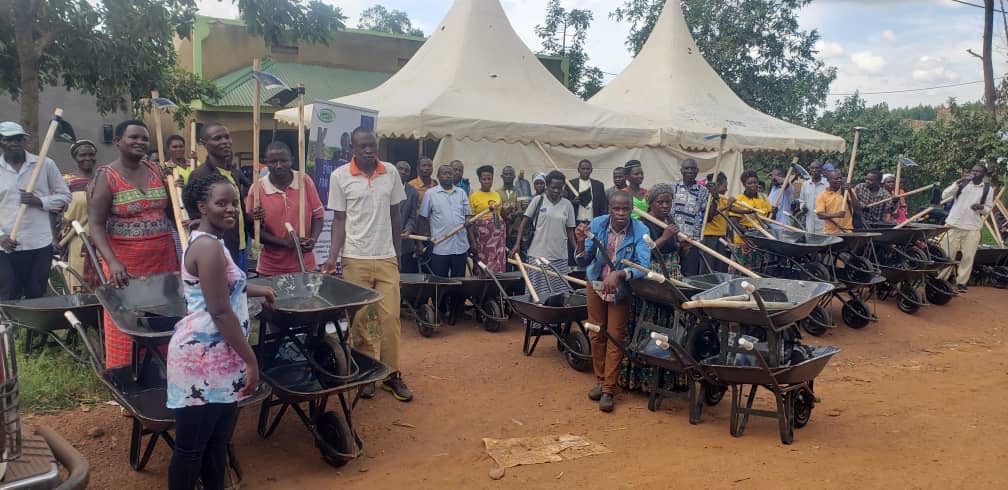Wednesday, October 18th, 2023 | By

As Uganda joined the rest of the world to celebrate the World Food Day (WFD) on 16th October, communities in Bunyoro region in western Uganda called on government to support farmers with farm inputs to improve food security and livelihoods.
Fred Musiimenta, the chairperson of Butimba Sustainability Conservation Association (BUSUCA) in Butimba village in Kikuube district says oil and gas developments have increased the population putting pressure on the existing land for food production.
Musiimenta says they are responding to the challenge by establishing mother gardens for a variety of crops and kitchen garden mainly for vegetables to boost household income and increase food security at household level. He, however, notes that farmers need more farm tools to be able to meet the growing demand for food in the region.
Musimenta says with support from National Association of Professional Environmentalists (NAPE) they planted cassava and kitchen vegetables as a group in a bid to boost food security and household income.
He notes that farmers have limited access to farm tools; hand hoes and finances and mostly depend on individual savings to invest in agricultural undertakings which limit their capacity to increased production.
BUSUCA is among 30 community women groups that received farm tools including hoes and wheel barrows, trainings on sustainable agriculture and support to establish mother gardens for variety crops and kitchen garden mainly for vegetables to boost their household income by National Association of Professional Environmentalists (NAPE) under the European Union funded project to improve food security and household income in the era of oil and gas extraction and COVID-19 Pandemic in Hoima, Buliisa and Kikuube districts.
Florence Mujoogo, one of the farmers living in Kijayo camp for internally displaced people in Kijayo village in Kiziranfumbi Sub County in Hoima district says hoes and wheel barrow she received from NAPE have helped to boost her food production at home for consumption and surplus for sale.
“I would in most cases go to the garden alone because my children had no hoes but when I got four hoes from NAPE, they helped me a lot. I am utilizing the family labor at home that was idle due to lack of enough tools,” said Mujoogo
Innocent Tumwebaze, a resident of Kyakaboga resettlement camp in Buseruka sub county, Hoima district said the farm tools have helped people in the camp in farm work. He applauded NAPE for supporting them with trainings and farm tools and urged the government and other non-state actors to adopt the initiative.
“Some people miss seasons due to lack of hoes, they have to wait for their neighbors to finish farm work to borrow from them. But NAPE has helped us. We are using the hoes that we received to led out to those who do not have,” said Tumwebaze.
Margret Wombe, a resident of Kigwera village in Buliisa district noted that to improve food security, there is need of supporting farmers with farm tools to help them meet the growing demand for food in the district.
“You find that a family of 5 able bodied members of labor force has no enough hoes and are forced to stay at home yet they can contribute to food production. And when there are no enough farm tools, women end up carrying the burden of using the available ones to provide food for the remaining unproductive labor force,” says Wombe.
Rajab Bwengye, the coordinator of Projects at NAPE says there is need for more provision of hand hoes to support the most vulnerable rural smallholder farmers to increase agricultural production considering the fact that majority of them cannot afford appropriate mechanization technologies for cultivation.
Copyright ©2026 Community Green Radio . All Rights Reserved. Designed : Lwegatech